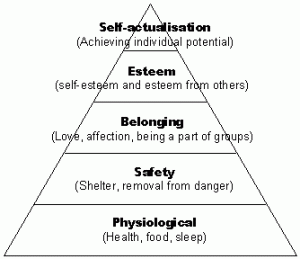The pursuit of success is a natural human drive and as humans, we all desire success in one form or another. I’ve always felt that my definition of success has been different from the status quo of words associated with success: “achieves, desires, aims and attains then accomplished”. Society puts too much emphasis on the outcome, and base off how successful someone is by what they’ve accomplished.
To me, success is a journey and this journey can only be called “success” if the foundation starts with happiness. Growing up we’ve been taught that achieving specific milestones of success will make us happy, but the greater truth is that success does not create happiness. It is happiness that creates success.
Unfortunately, the textbook does not define success nor happiness. Thus, I want to bring this matter to attention as I believe that it is very crucial to the topic of Organizational Behaviour because no matter how well an organization is managed, it will not succeed under the condition that it doesn’t consist of happy employees. The reason I say this is because I remember reading an article (1) about the toxic culture at Amazon and how unhappy and pressured its employees constantly felt. I’m sure it is easy to fulfill the needs on the building blocks of Maslow’s Hierarchy (2) but I’ve never once believed that this pyramid = happiness.

Maslow’s Hierarchy of Needs
Recently, I picked up a book called The Happiness Equation, written by Neil Pasricha (3). He focuses on how most “successful” people aren’t truly happy people. They’re successful in terms of how others perceive them but the inner truth is that there are no feelings of reward. My favourite chapter so far is Secret #1: The First Thing You Must Do Before You Can Be Happy. Being happy is often easier said than done and this isn’t because our brains can be wrapped around negative thoughts, but it is that we fear these negative thoughts will take away our happiness.
I love how Aristotle said “happiness depends upon ourselves” , but I’ve always wondered, how do we get there? I am intrigued by how Neil answers this through a quote: “I am convinced that life is 10% what happens and 90% how I react to it”. In others words happiness is an attitude, it is less an event and more an ongoing state of mind and a way of focusing on the picture at large because success isn’t made up of “happy moments” but rather a more positive outlook on all moments.
I believe it is important to address this topic of well-being when managing an organization in terms of culture, as this is highly interrelated to intrinsic motivation and many other self-factors that create a successful organization. To end it off my definition of success is holistic. Success can only be success if we begin, and end off with a big smile while being wholeheartedly happy.

- Spicer, A. (2015, August 17). The tragedy behind Amazon’s toxic management fad | Andre Spicer. Retrieved November 25, 2016, from https://www.theguardian.com/commentisfree/2015/aug/17/amazon-management-fad-rank-yank-jeff-bezos
- Langton, Robbins, Judge, Organizational Behaviour, 7th edition, p. 130.
- Pasricha, Neil, Putnam, The Happiness Equation.